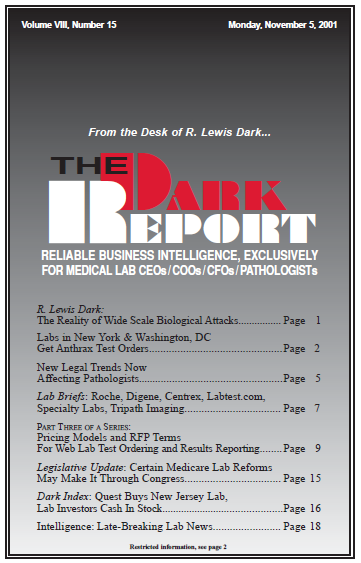CEO SUMMARY: In both New York City and Washington, DC, widespread publicity about exposure to anthrax generated a steady volume of test requests. Clinical labs in both cities adopted similar management strategies to deal with the sudden public interest in anthrax testing. One common step was to send detailed information about anthrax testing to physician […]
To access this post, you must purchase The Dark Report.


